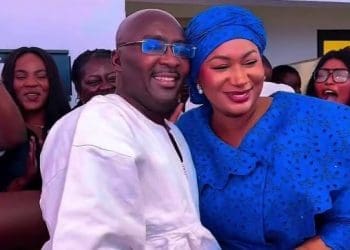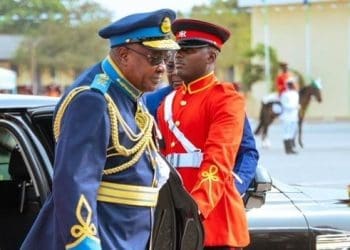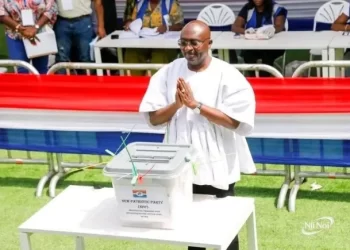As Ghana mourns the loss of one of its greatest musical icons, Charles Kojo Fosu, popularly known as legend Daddy Lumba, Newscenta takes a moment to reflect on the unforgettable songs that defined his extraordinary career.
With a catalogue that spans over three decades, Daddy Lumba was not just a highlife artist — he was a storyteller, a voice of the people, and the emotional pulse of a generation.
Daddy Lumba’s music was not just entertainment — it was a reflection of life itself. Whether you were falling in love, going through heartbreak, chasing dreams, or dancing your worries away, he had a song for every moment.
From Aben Wo Aha to Theresa, explore a collection of iconic Daddy Lumba tracks that have shaped Ghana’s highlife sound for over three decades.
This is a collection of ten unforgettable tracks by one of Ghana’s most beloved musical icons.
The list is not ranked; it simply celebrates the enduring brilliance of the late Daddy Lumba’s artistry.
Here are 12 timeless songs that capture the heart, soul, and genius of Daddy Lumba.
- Aben Wo Ha (1998)
Arguably his most controversial and iconic hit, Aben Wo Ha shook the nation with its edgy lyrics and unforgettable chorus. It became a party anthem, a street slogan, and a cultural statement. Even today, it remains one of Ghana’s most recognisable songs.
- Theresa (1993)
A sweet ballad named after a woman who became legendary in her own right, Theresa captured the innocence and yearning of young love. With gentle rhythms and heartfelt lyrics, this song made Lumba a household name in the early ’90s.
- Yentie Obiaa (2014)
A bold declaration of independence, Yentie Obiaa (“We won’t listen to anyone”) became an anthem of confidence and self-determination. It resonated deeply with both young and old, even catching the attention of politicians and public figures.
Poison Poison, released in 2001, marks a shift in Lumba’s sound toward a more modern, dancefloor-friendly style. Despite the evolution, the highlife essence remains strong. The album was a major success, further cementing his place in Ghana’s musical history.
- Playboy (1995)
With a touch of humour and swagger, Playboy showcased Lumba’s ability to blend cheeky storytelling with irresistible melodies. The song became a hit with fans who loved his charm and lyrical wit.
- Odo Bewu Dee (2002)
Translated as “Love That Will Die With Me,” this powerful love song is filled with raw emotion. A favourite at weddings and anniversaries, it remains a testament to Lumba’s ability to express deep romantic devotion through music.
- Sika Asem (1999)
A cautionary tale about the power and problems that come with money, Sika Asem touched on real social issues with the smooth elegance only Lumba could deliver. The song resonated with many struggling between wealth and values.
- Biribi Gyegye Wo (2000)
A motivational anthem, Biribi Gyegye Wo (“Something Will Comfort You”) brought hope to listeners during hard times. With its uplifting message, it continues to be played in moments of hardship and perseverance.
- Dada K.D & Lumba – Obi Ate Me So (1999)
In this unforgettable duet, Daddy Lumba collaborated with fellow highlife singer Dada K.D. to deliver one of the genre’s most loved songs. The vocal chemistry and emotional storytelling made it an instant classic.
- Tokrom (2001)
With rich traditional rhythms and socially conscious lyrics, Tokrom is a tribute to Ghana itself — its struggles, beauty, and resilience. It’s a reminder of how deeply rooted Lumba’s music was in the Ghanaian experience.
11. Doctor Panee
This song, known for its memorable chorus, evokes a sense of nostalgia for many who grew up with Daddy Lumba’s music. The tune remains a fan favourite and is frequently searched for online by those hoping to relive cherished memories of their youth.
12. Ye Nea Woho Beto Wo












